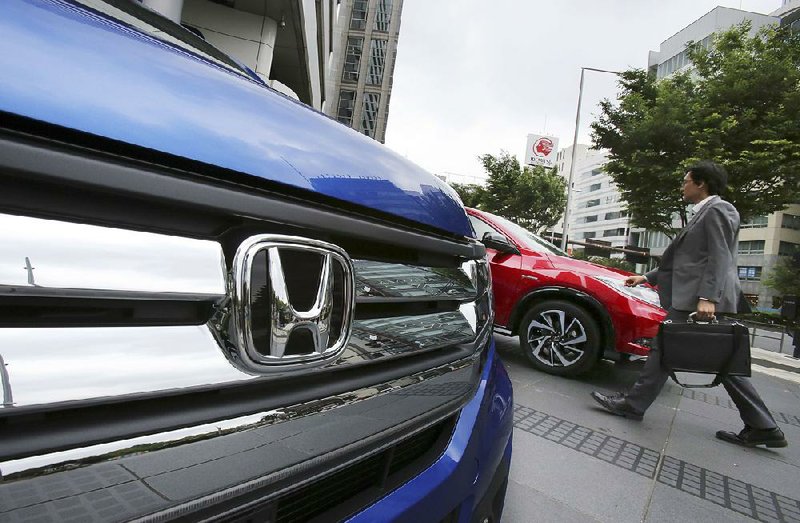Honda raised its forecast Friday for full-year operating profit for a second time this fiscal year, citing the impact of favorable foreign exchange rates after the yen weakened with the election of President Donald Trump.
Operating profit will probably rise to $6.9 billion in the fiscal year ending in March, up from $5.8 billion it forecast in October, the Tokyo-based automaker said in a statement. That compares with the $6.6 billion average of 19 analysts' estimates compiled by Bloomberg.
The yen has weakened about 7 percent against the U.S. dollar after Trump prevailed in the U.S. presidential election. Trump this week lashed out at China and Japan for taking advantage by devaluing their currencies, an accusation Japan has denied. A reduction in selling expenses also contributed to the lifting of the full-year profit forecast, Honda said.
The automaker based the full-year earnings forecasts on 107 yen per dollar, compared with 103 yen per dollar for its previous forecast made in October. The yen traded at 113 yen against the dollar Friday.
Honda sold a record number of vehicles in the U.S. and China last year, helped by demand for its Vezel crossover and the new Civic sedan. The Tokyo-based carmaker is projecting an increase in global sales in the fiscal year starting April on demand in the two markets, according to a person familiar with the plans.
The automaker posted third-quarter net income of $1.5 billion, beating the analysts' estimates for $1.04 billion.
Japanese Prime Minister Shinzo Abe is set to meet Trump next week in Washington after pushing back on the latter's characterization of the U.S.-Japan car trade as "unfair."
Honda Executive Vice President Seiji Kuraishi said Friday he hopes the meeting will "remove misunderstanding." Honda makes about 70 percent of the vehicles sold in the U.S. in domestic plants, the highest localization ratio after Ford Motor Co., he said.
Honda will respond to any U.S. policy changes under Trump, said Kuraishi, without elaborating. The carmaker will probably maintain U.S. sales volume this year, even as industrywide sales may slide from last year's record, he said.
Honda's shares rose 0.2 percent to $30.31 at the close of trading in Tokyo on Friday before the earnings results.
Honda raised its full fiscal-year net-income forecast to $4.8 billion.
That was up 58 percent from $3.05 billion a year ago, when Honda was hit by expenses for the Takata recalls. Honda had earlier expected a $3.6 billion annual profit. It said a more favorable exchange rate would likely help.
Defective inflators have set off excessive explosions in Takata air bags, spewing shrapnel into the passenger compartment, killing at least 16 people worldwide.
That has resulted in the largest auto recall in U.S. history, affecting 69 million inflators and 42 million vehicles. About 100 million inflators have been recalled worldwide.
Almost all the world's major automakers have models affected by the Takata recall, but Honda is among the most exposed because it has had a close relationship with Takata. Honda expressed hopes that the worst of such expenses was behind it.
Last month, Takata agreed to plead guilty in the U.S. and pay $1 billion in fines and restitution over a lengthy scheme to conceal the deadly defect in millions of air bags. Three former Takata executives were also indicted in the case.
Information for this article was contributed by Ma Jie and Yuki Hagiwara of Bloomberg News and Yuri Kageyama of The Associated Press.
Business on 02/04/2017
